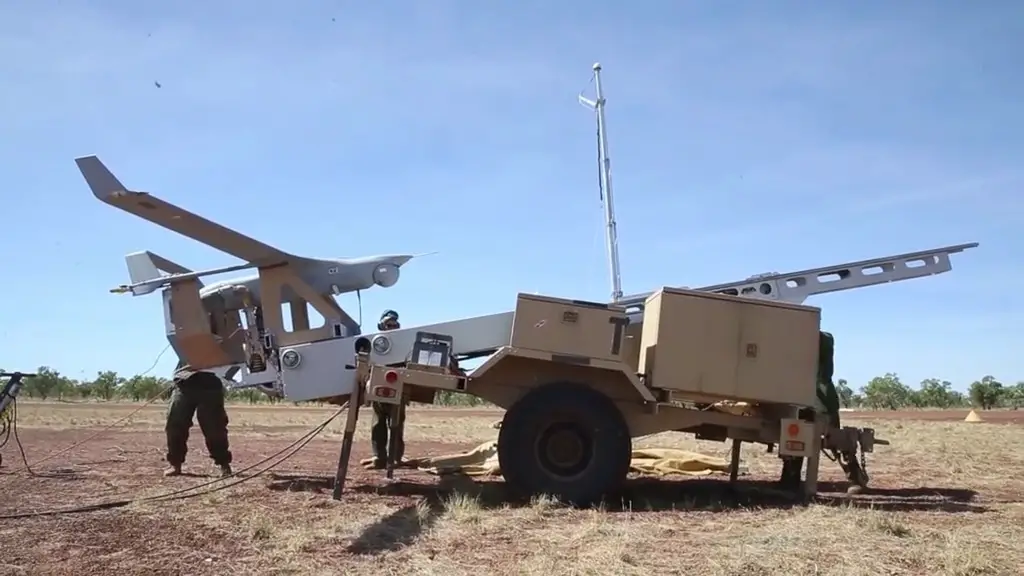U.S. Marines with Air Combat Element, Marine Rotational Force – Darwin (MRF-D) conduct the Marine Corps’ first flight of the RQ-21A Blackjack in Australia in Bradshaw Field Training Area, Northern Territory, Aug. 7, 2020. Marine Rotational Force-Darwin is a United States Marine Corps Marine Air-Ground Task Force based at Matilda Lines at Robertson Barracks and at Royal Australian Air Force (RAAF) Base Darwin. The RQ-21A Blackjack is designed to support the U.S. Marine Corps by providing forward reconnaissance with leaving a small footprint, as it doesn’t require an airstrip to deploy.

On 16 November 2011, Prime Minister Julia Gillard and President Barack Obama announced that starting in 2012 US Marines would deploy to Darwin on a rotational basis for about six months to conduct exercises and train with the Australian Defence Force in the Northern Territory. The first rotation of about 200 US Marines deployed to Australia in April 2012. On 14 June 2013, the Prime Minister announced that in 2014 the size of the deployment would increase to 1150 US Marines to be based at Robertson Barracks. In the coming years, the size will increase to full strength of up to 2,500 but not before 2016.

The Boeing Insitu RQ-21 Blackjack, formerly called the Integrator, is an American unmanned air vehicle designed and built by Boeing Insitu to meet a United States Navy requirement for a small tactical unmanned air system (STUAS). It is a twin-boom, single-engine monoplane, designed as a supplement to the Boeing Scan Eagle. The Integrator weighs 61 kg (134 lb) and uses the same launcher and recovery system as the Scan Eagle. The air vehicles can be launched on land or on a ship by a rail and land using a “skyhook” recovery system, where a vertical wire must be hooked onto its wing; when on the ground, the launch and recovery systems are towable by vehicles.

The Marines are working with Insitu to modify the Blackjack fuselage to carry greater and more various payloads. Enlarging the fuselage would increase its maximum takeoff weight from 135 lb (61 kg) to 145 lb (66 kg) and lengthen endurance from 16 hours to 24 hours. New turrets are being explored as well as other payloads including a synthetic-aperture radar to track ground targets, a laser designator to mark targets for precision-guided munitions, and foliage-penetration capabilities for foreign customers operating in lush environments. In Marines service, the Blackjack sometimes uses the designation MQ-21.













